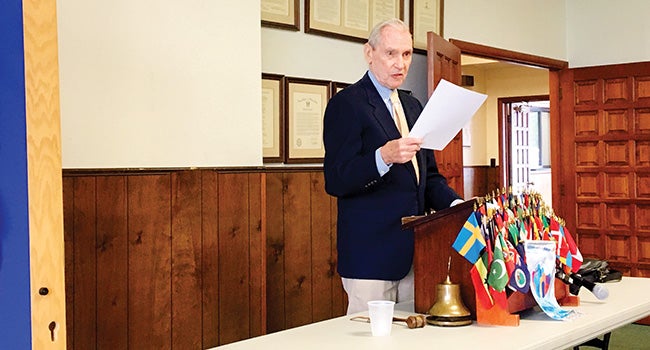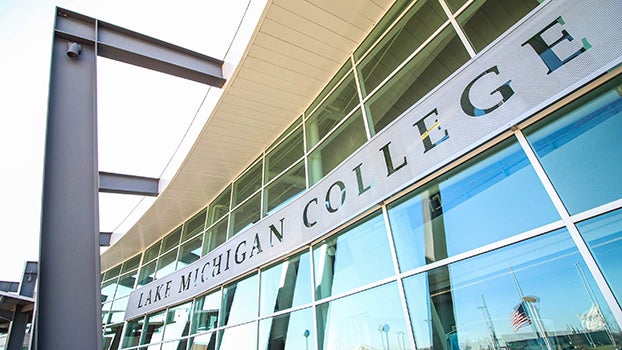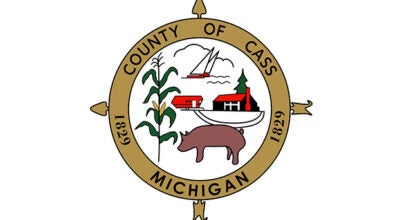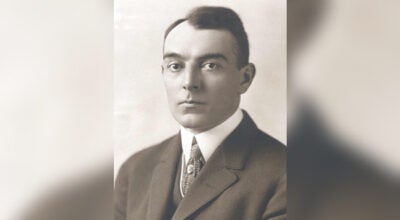Retired area educator discusses alternatives to college at Dowagiac Rotary
Published 8:00 am Friday, August 18, 2017

- Kalamazoo’s Larry Schlack delivers a speech to members of the Dowagiac Rotary Club during their meeting Thursday at the Elks Lodge. Schlack, a retired educator, discussed how high school graduates can succeed without earning a college degree. (Leader photo/TED YOAKUM)
For the last several decades, educators across the country have pushed high school students toward the same destination for their futures: entering college and earning a four-year degree.
While many have benefited from the increased accessibility to higher education, according to one retired area educator, this one-size-fits-all approach to educational guidance also leaves many students encumbered with debt and without a clear direction on what to do after graduation.
Instead, Kalamazoo’s Larry Schlack is encouraging students to not think of what college they should attend after high school, but to instead consider the best path they should take in order to achieve success in the job market — which may bypass the secondary education system altogether.
Schlack has met many people who personify this fact. Several years ago, he was introduced to a roofer living in the Kalamazoo area who, in spite of the advice of his teachers, decided to forego attending college and decided to leap right into the construction business.
“His two older brothers went to college,” Schlack said. “[Today], they work for him.”
The former teacher and education consultant discussed how students can earn a career without earning a college diploma first during his presentation titled “Careers without College — Not a Second-Class Option,” which he delivered to the members of the Dowagiac Rotary Club Thursday afternoon. Schlack was invited to speak to the club by Rotarian Bob Cochrane, the CEO of the Cass County COA.
Schlack held many positions in the educational world before his retirement, including as a teacher with the Saginaw and Detroit areas, superintendent of the Barry County ISD, administrator with the Kalamazoo RESA and as a professor with Western Michigan University. The Kalamazoo man has spent more than 20 years emphasizing the importance for students to consider options outside attending college, speaking at educational conferences, Rotary clubs and other venues. His points contrast that of many in the field of education, who have increasingly pushed high school graduates toward higher education — whether the best fit for students or not, Schlack said.
“Too many kids are using college as a very expensive form of career exploration,” he said. “They constantly are changing majors. They take five to six years to graduate. They rack up tremendous debt.”
Instead of asking themselves “where should I go to college?” high school students should instead consider, “where do I want to go in life — and will college help me get there?” Schlack said.
The former educator is a big advocate of “bottom rung” learning, where graduates pick up the knowledge and skills they need to pursue a career through making their ways through the rank of their given profession, rather than earning a degree and expecting a high paying position right off the bat, he said.
“I say to kids, ‘take a job in a field that interests you, whether it’s a restaurant, a gas station, who knows what,’” Schlack said. “Learn from the bottom up. You will be earning money. You won’t be paying tuition. Sometimes you will have benefits. And it’s a good start.”
Other possible career fields include enlisting in the armed services, landing a job in the state or federal civil service or even getting a gig with a local radio or TV station, which often do not require a college degree to get one’s foot through the door, Schlack said.
For example, simply by landing a job as an assistant manager at a gas station, a young person can learn important management and leadership skills. In return, all they have to bring to the table is to show up on time, treat customers with respect and be honest: traits that do not require a four-year college degree to acquire.
“For a kid right out of high school, who wants to be an entrepreneur, what a way to start,” Schlack said. “You are not going to be there forever, but it gives you a great place to begin your career.”





